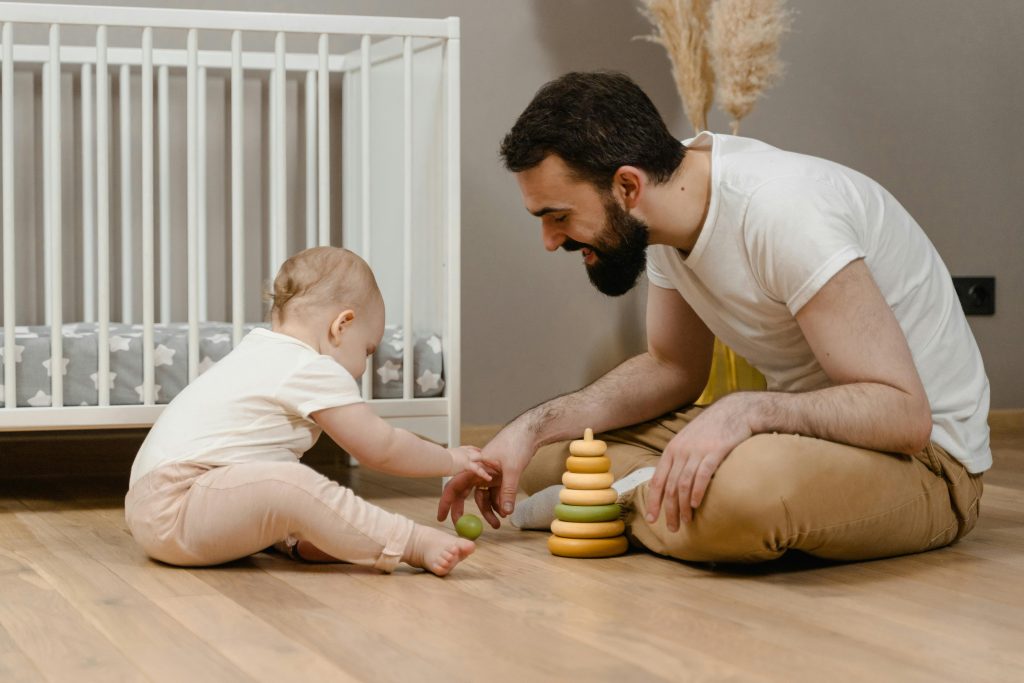Infant emotional development refers to the gradual process by which babies learn to express, understand, and regulate their emotions. Understanding the development of emotional status within infant, parents can contribute in influencing the process.

Table of Content
- Stages of Infant Emotional Development
- Factors Influencing Infant Emotional Development
- How Caregivers Can Support Infant Emotional Development
- Conclusion
This early stage of emotional growth is crucial in shaping a child’s ability to form relationships, manage stress, and develop a sense of security and trust. Emotional development in infancy is deeply influenced by caregiver interactions, environmental factors, and biological predispositions.
Stages of Infant Emotional Development
- Newborn Stage (0-3 months)
- Infants primarily express emotions through crying, which signals hunger, discomfort, or distress.
- They begin to show early signs of contentment, such as relaxed body language and cooing.
- Smiling emerges as a reflex but soon becomes a social response to caregivers.
- Early Emotional Recognition (3-6 months)
- Babies start to recognize and respond to different facial expressions and tones of voice.
- They develop a social smile, responding to positive interactions with joyful expressions.
- Laughter appears, signaling the ability to express pleasure and excitement.
- Emerging Emotional Awareness (6-9 months)
- Infants begin to express a wider range of emotions, including joy, frustration, and surprise.
- They develop stronger attachments to caregivers and may show early signs of separation anxiety.
- Emotional regulation begins as they learn to self-soothe through sucking or cuddling objects.
- Increased Emotional Expression (9-12 months)
- Babies become more intentional in showing emotions, such as reaching for a caregiver when scared.
- They start to experience and express fear, especially towards strangers (stranger anxiety).
- Infants engage in social referencing—looking to caregivers for emotional cues on how to react to new situations.
- Developing Emotional Independence (12-24 months)
- Toddlers display more complex emotions, such as jealousy, pride, and embarrassment.
- They experiment with expressing autonomy but may also experience tantrums due to difficulty regulating emotions.
- They begin to show empathy by reacting to others’ emotions, such as comforting a crying peer.
Factors Influencing Infant Emotional Development
Several factors play a role in shaping an infant’s emotional growth:
- Caregiver Responsiveness: Attentive and loving caregivers help infants develop a sense of trust and security.
- Social Interactions: Positive interactions with family members and peers enhance emotional understanding.
- Temperament: Some infants are naturally more easygoing, while others may be more sensitive or reactive.
- Attachment Style: Secure attachment fosters confidence, while inconsistent caregiving may lead to anxiety or insecurity.
- Environmental Stability: A safe and predictable environment helps infants feel secure in exploring their emotions.
How Caregivers Can Support Infant Emotional Development
- Respond to Emotional Cues: Recognizing and addressing an infant’s emotions fosters trust and emotional security.
- Provide Comfort and Affection: Physical closeness, such as cuddling and soothing touch, helps infants regulate emotions.
- Encourage Expressive Play: Playing with toys, music, and interactive games allows infants to explore emotions.
- Model Positive Emotions: Expressing calmness and positivity in different situations teaches infants healthy emotional responses.
- Talk About Feelings: Using simple words to label emotions (e.g., “You look happy!” or “Are you feeling sad?”) helps infants associate feelings with words. If you want to learn more Read here.
Conclusion
Infant emotional development is a vital part of early childhood growth, influencing future relationships, self-regulation, and overall well-being. By providing a nurturing and responsive environment, caregivers can help infants develop a strong emotional foundation that supports their lifelong social and emotional skills. If you need more informtaion Read here.